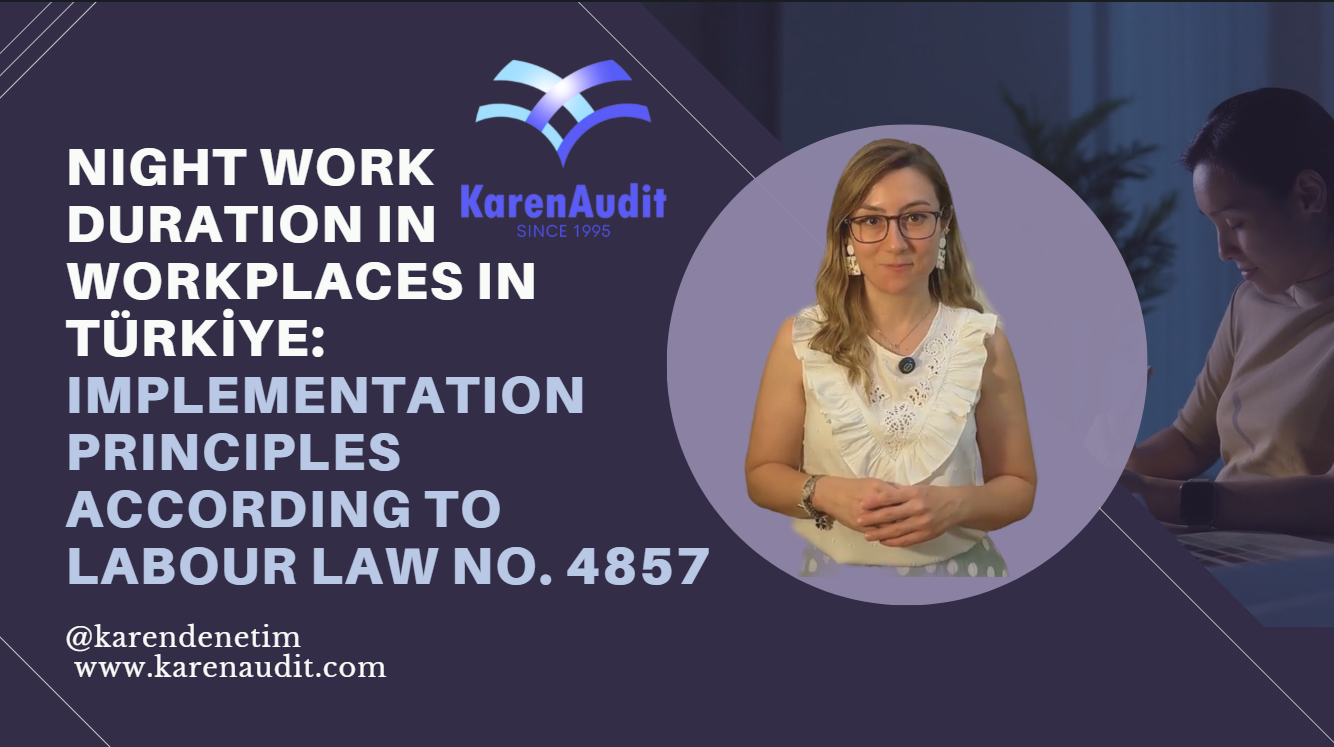Night work and shift systems are common in many workplaces across Türkiye. However, both employers and employees must comply with specific legal regulations designed to protect workers’ rights and health. In this article, we’ll summarize how night work is defined under Turkish Labour Law (Law No. 4857), the limits on working hours, and the rules surrounding shift rotations.
What Is Night Work?
According to Labour Law No. 4857, night work refers to any work performed between 8:00 p.m. and 6:00 a.m. The total duration of work during this period should not exceed 11 hours. This timeframe may be adjusted slightly due to local conditions or daylight saving time, but the general rule applies nationwide.

Duration and Limits of Night Work
The law limits night work to a maximum of 7.5 hours per day. This restriction aims to protect employees’ health and safety. Working more than 7.5 hours at night is allowed only in certain circumstances and with the employee’s prior written consent.
Exceptions for Specific Sectors
Some sectors are permitted to have longer night shifts if employees agree in writing. These sectors include tourism, private security services, healthcare, and petroleum exploration and drilling (regulated under Law No. 6491).
How Shift Rotation Works
In workplaces with rotating day and night shifts, the law requires that:
-
Employees working night shifts must be rotated to day shifts the following week.
-
Weekly or biweekly rotations are acceptable.
-
After a shift change, employees must receive at least 11 hours of uninterrupted rest before starting their next shift.
These rules help safeguard workers’ well-being and ensure smooth business operations.
Applicability to Foreign Employers
All employers operating in Türkiye—whether local or foreign—must comply with these regulations. Non-compliance can lead to penalties or legal consequences, so it is crucial to understand and follow the rules properly.
By understanding these key points, businesses can better manage night work schedules while respecting employees’ rights and meeting legal requirements.
If you have any questions or want to learn more about labour law in Türkiye, feel free to reach out or leave a comment!
You can watch our YouTube video about this and subscribe for more 👇
Legal Notice: The information in this article is intended for information purposes only. It is not intended for professional information purposes specific to a person or an institution. Every institution has different requirements because of its own circumstances even though they bear a resemblance to each other. Consequently, it is your interest to consult on an expert before taking a decision based on information stated in this article and putting into practice. Neither Karen Audit nor related person or institutions are not responsible for any damages or losses that might occur in consequence of the use of the information in this article by private or formal, real or legal person and institutions.






